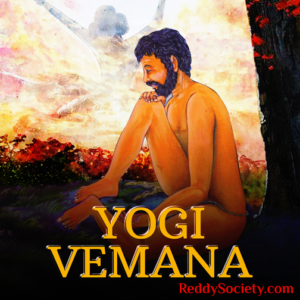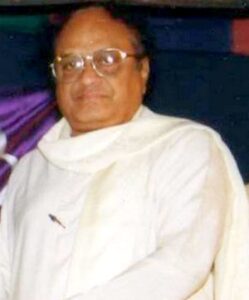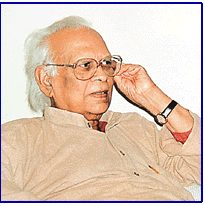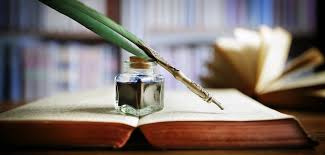 Yogi Vemana ( Gona Vema Buddha Reddy / Kumaragiri Vemareddy) – Great Telugu Poet and one of 33 UNESCO recognized greatest poets in the world. Born 1352(Estimate by CP Brown) – 1430(Katarlapalli). Vemana was a 14th century Telugu poet. His poems were written in the popular vernacular of Telugu, and are known for their use of simple language and native idioms. His poems discuss the subjects of Yoga, wisdom and morality. He is popularly called Yogi Vemana, in recognition of his success in the path of Yoga.
Yogi Vemana ( Gona Vema Buddha Reddy / Kumaragiri Vemareddy) – Great Telugu Poet and one of 33 UNESCO recognized greatest poets in the world. Born 1352(Estimate by CP Brown) – 1430(Katarlapalli). Vemana was a 14th century Telugu poet. His poems were written in the popular vernacular of Telugu, and are known for their use of simple language and native idioms. His poems discuss the subjects of Yoga, wisdom and morality. He is popularly called Yogi Vemana, in recognition of his success in the path of Yoga.
There is no consensus among scholars about the period in which Vemana lived. C.P. Brown, known for his research on Vemana, estimates the year of birth to be the year 1352 based on some of his verses.
Vemana was the third and youngest son of Kumaragiri Vemareddy, the then king of Kondaveedu in present-day Andhra Pradesh. He was named Vemareddy after his father.
There is a headstone marking the grave of Vemana in kataru palli, a village in Anantapur. It is believed widely that Vemana died in this village. Being a Yogi, he was buried and not cremated.
 Suravaram Pratapa Reddy – Writer and author of social history of Andhras. Suravaram Pratapareddy (1896-1953) is a social historian from the Telangana region of Andhra Pradesh, India.
Suravaram Pratapa Reddy – Writer and author of social history of Andhras. Suravaram Pratapareddy (1896-1953) is a social historian from the Telangana region of Andhra Pradesh, India.
His work Andhrula Saanghika Charitra is considered the best social history of the Telugus. It was first published in 1949 and has since gone through many editions. It is considered to be one of the most important twentieth century works in Telugu. It was the first Telugu book that to win the best national book award (Kendra Sahitya Academy Puraskaram). From the 1970s onwards it was a prescribed text for the IAS, IPS civil service examinations and by the AP civil services commission.
Suravaram was arguably the most prominent Telangana intellectual of the 20th century and published many literary works including Golconda Kavula Charitra, Raamayana Visheeshaalu, Hinduvula Pandagalu, Hindava Dharma Viirulu and many short stories and poems. Golconda Kavula Charitra is a monumental work which illustrates not only the rich literary history of the Telangana region but also displays the writer’s passion for research and literary/cultural study.
He was the editor and founder of Golconda Patrika, a journal in Hyderabad State. Many of his articles appeared in journals like Sujata, Shoba, Bharati etc.
Malla Reddy Gajjela – A prominent CPI leader and writer
 Dr. C.Narayana Reddy – Poet and Lyric Writer (born 29 July 1931). He is a winner of the Jnanpith Award in 1988 for his contribution to Telugu literature. He is considered a foremost authority on Telugu Literature. He is known as Cinare.
Dr. C.Narayana Reddy – Poet and Lyric Writer (born 29 July 1931). He is a winner of the Jnanpith Award in 1988 for his contribution to Telugu literature. He is considered a foremost authority on Telugu Literature. He is known as Cinare.
Narayana Reddy was born in Hanumajipeta, Karimnagar district in Andhra Pradesh. He completed his Master”s degree and Ph.D. degree in Telugu literature from Osmania University.
The Government of India honoured him with the Padma Shri in 1977 and the second highest civilian award, the Padma Vibhushan in 1992. He was conferred with the Raja-Lakshmi Award in the year 1988 from Sri Raja-Lakshmi Foundation, Chennai.
He won the Jnanpith Award for his poetic work Viswambara, which has been translated into three other languages. He became one of only two Telugu persons who have received that award, the other being Viswanatha Satyanarayana.
Dr. V.Malkonda Reddy – Poet and Eminent Writer, First principal of CBIT

Dr. J. Bapu Reddy – Poet & writer in Telugu and English, Indian Administrative Service(Retd)
 Tikkavarapu Pattabhirami Reddy (Pathabhi) – (19 February 1919 – 6 May 2006) was an Indian film screenwriter, producer, director, social activist, poet, and writer known for his pioneering works in Telugu cinema, and Kannada cinema.
Tikkavarapu Pattabhirami Reddy (Pathabhi) – (19 February 1919 – 6 May 2006) was an Indian film screenwriter, producer, director, social activist, poet, and writer known for his pioneering works in Telugu cinema, and Kannada cinema.
Reddy has received three National Film Awards for his works. In 1972 he produced and directed Samskara which garnered the National Film Award for Best Feature Film and Bronze Leopard at the Locarno International Film Festival. Reddy has actively participated the Indian Emergency opposition movement, human rights movement, and child labor movements as founder member of People’s Union for Civil Liberties. In 1977, he produced and directed the bilingual Chandamarutha in Kannada, and English. The film was banned during the Emergency, and was later released to critical appreciation.


